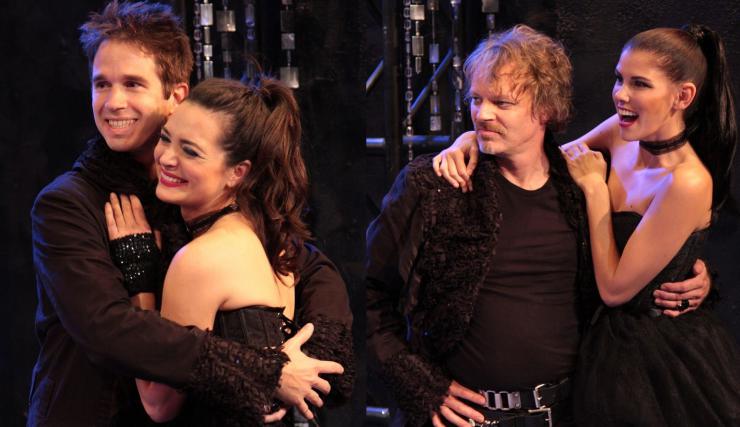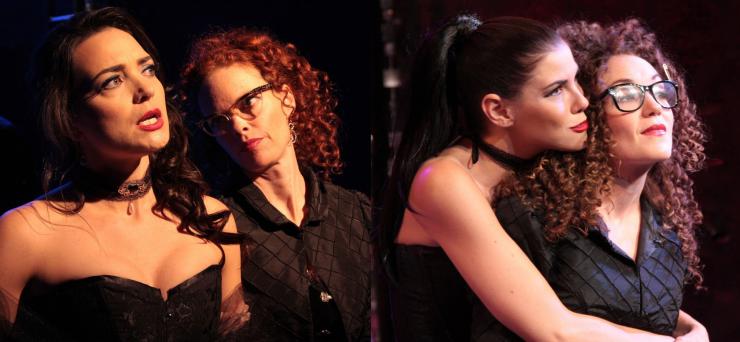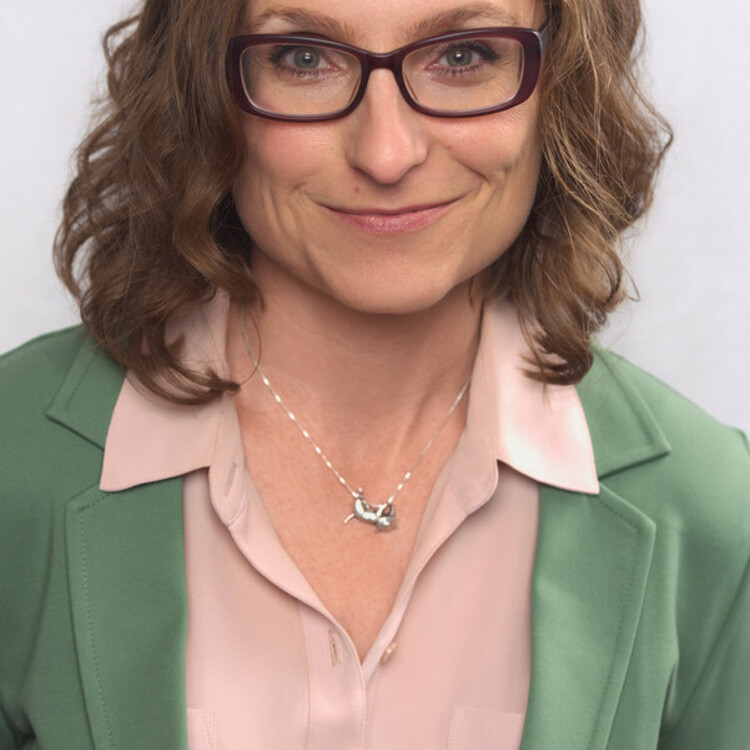Dispatches from LALA Land
Double Casting and The Antaeus Company
When The Antaeus Company began in 1991, under the auspices of Center Theater Group, the idea was to find a way to maintain a classical theater company within the specific environment of Los Angeles where, for most actors, a living is made through a series of one-day jobs as costars, guest stars and spots on commercials. Today Antaeus operates as an independent theater company in North Hollywood, but it remains true to its vision of providing a touchstone for actors working in film and television, a place where they can “regain their creative strength by returning to the wellspring of their craft: live theater.” Today many of its founding members still perform with the company, which produces a wide range of plays by Shakespeare, Greek drama, and Restoration Comedy; American classics like The Crucible; and modern updates and adaptations of the classics.
The governance of the company has changed over the years—today they have three co-artistic directors—but since the beginning, Antaeus has practiced double casting, or what they call “partner casting:” Every role in every show is cast with two actors. Though the practice began as a way to ensure that they would not have to cancel shows every time an actor booked a lucrative one-day gig, according to co-Artistic Director and actor Bill Brochthrup, it grew from there:
“What we started to find after the logistics of it were implemented was that it has artistic merits and it’s an interesting thing for the actors. It’s tough for the scheduling—the scheduling is nightmarish, there’s no way around it—but we started to find that when you’re creating a part with another person and you set it up from the beginning that these two people are creating this role together, and come at it with a lack of ego and a collaborative spirit, you really find interesting things.”
...two people are creating this role together, and come at it with a lack of ego and a collaborative spirit, you really find interesting things.

Over time, the company has discovered that the best way to foster the kind of collaboration necessary to building such a show together, the whole company has to rehearse as a group until tech, when the actors are finally divided up into two casts. Up until tech, whenever a character is called, both actors playing that part are called, and they alternate acting and watching their partner act.
Co-Artistic Director and actor Rob Nagle described the benefits this way: “As long as the actor can set aside their own ownership of the role and start to watch it as though you are creating something together, it works. Each time Brian [his partner in a recent production] would go onstage and do something I could say ‘Oh that’s good, I like that, I want to build on that.’ So you find yourself building on the shoulders of the other person’s performance, so you both get higher and higher up into the role,” he says. “But you have to check out of this ‘I have to make it mine concept,’ which is a really hard thing for actors to do because we’re supposed to make something our own. We have to make it ours in a plural sense.”
The final production of Antaeus’ 2013 season—David Ives’ adaptation of Pierre Corneille’s The Liar—could be seen with the “Tangerines” cast or the “Cherries” cast in alternating performances on Saturdays and Sundays, and on Thursdays and Fridays with a mash-up of the two called the “Pomegranates.” (These fruit-themed groupings derive from the play’s titular character’s elaborate lie about a great date at which “five blindfold virgins served us pomegranates on alabaster plates.”) Through the weekend, Tangerines and Cherries take alternate turns on the stage through three shows. Though technically the Tangerines and Cherries casts were two wholly different sets of actors, when anyone in either cast got another job, their counterpart subbed in.

Though Ives’ translaptation, as he calls it, of Corneille’s neo-classical comedy strays from the original in plot, character, and dialogue, it recreates, often in modern urbanese, the florid verse peculiar to the form. Likewise, the acting and design of director Casey Stangl’s production capture the essence of the period’s style without turning its stylistic elements into set pieces. In fact the rhyming couplets and physical comedy of the mistaken-identity/lost twin/life-changing events-that-nevertheless-unfold-within-24-hours shenanigans that typify these comedies make it perfect for the practice of partner casting, in which the blocking or the positioning of actors on the stage must be executed with exactitude so that any actor may be subbed in with any cast at any time.
Stangl says that the process necessary to building such a show actually suits her directing style, even though the usual “negotiations” are a little bit trickier: “You really have to talk about everything in the moment that you’re working on it so somebody doesn’t come back the next time and do it completely differently cause they think that’s how it should go. It’s a little more delicate matter juggling that so that everybody feels heard and listened to and valued.”
For her, the benefits are well worth the scheduling nightmares. Speaking of the actors’ process, she shared, “In a way it’s almost like you’re watching yourself on stage, you have a sense of your character not just when you’re up there in your bubble, but you can see it in the whole of the production. So you start to see how your character fits into the world of the play in a kind of holistic sense. And I have found that as a director to be invaluable, to have actors be able to make observations and comments based on that kind of bird’s-eye view.”
...Stangl works with the actors to find what she calls “dealer’s choice,” moments where two actors playing the same role can make different choices.
Though the blocking stays the same in all performances, Stangl, who has directed with the company before, works with the actors to find what she calls “dealer’s choice,” moments where two actors playing the same role can make different choices. As a result, when one actor substitutes for another in the cast with which she doesn’t usually perform, the subtle differences require the entire cast to be particularly in-the-moment. As Co-Artistic Director John Sloan, who also acts with the company, put it, “You are instantly that much more alive and awake and listening that much more acutely. It’s fun and terrifying.” Nagle echoed the sentiment, saying, “It’s fantastic because you get to play again like you were in rehearsals. In front of an audience. It’s terrifying and exciting at the same time.”
The roster of actors in The Antaeus Company is multi-faceted: Some ensemble members have decades of experience performing in theater, film, and television while others have only recently joined the Antaeus Academy and are still surprised to find a company so focused on the classics in the heart of Hollywood. Sloan contextualized the value of Antaeus both for actors and audience this way: “One of the founding goals of the company was to counteract the speed of Hollywood and the jobs you’re forced to do as an actor where you go, you have a couple of takes and you’re told what to do when and it’s over in 20 minutes. In a place that worships the new, the next thing so aggressively, hopefully we can offer a little oasis that says there’s value in taking time and in the practice of listening to complex language and thoughts—that there’s something to be learned from that as well.”
As to The Liar in particular, it’s not hard to find the resonances for a Los Angeles audience of a play about a compulsive liar and rake whose skills in love are surpassed only by his ability to spin a tall tale. In a land where the ability to sell oneself is prized above all else, the liar’s ode to lying really hits home:
This world’s a scrim, Cliton, a fiction,
A richly tapestried, inch-thick depiction
Stretched over some mysterious cosmic hole.
You say that you’re a servant. How do I know?
Who’s she, or he? Who is the whole back row?
How do I know the smallest thing? I can’t.
No one knows anything. So people rant,
Protest, despair, take up astrology —
For each man fears in his biology
That life’s a fraud, a fake, an empty vial.
Why else do people primp and pose? Denial.
That’s where the liar comes in. Because he knows
The truth, accepts the void, because he shows
Us the absurd commedia we’re all masked for.








Comments
The article is just the start of the conversation—we want to know what you think about this subject, too! HowlRound is a space for knowledge-sharing, and we welcome spirited, thoughtful, and on-topic dialogue. Find our full comments policy here
Thanks for this excellent article on our company. I wish everyone would double-cast. I act in film/TV, and in other theatres around LA, and I see the disadvantages to it, but the advantages are epic. Maybe it's just me, I'm always a bit in my head, trying to figure out how I fit in to the larger picture, and with double-casting, I can actually SEE how "I" fit in, when I watch my double do our blocking. Then I stop wondering/fretting, and get back to an informed, refreshed embrace of the scene.
It's true that we have egos, we want to be the best actor, and some of our members wrestle with that, but I have always longed to explore the ego-less acting experience, and this is a step in that direction. I know it's a bit of a zen koan, egoless acting, removing the Self... from your acting. But it's just a huge relief to give away all your best ideas and know you can come up with a dozen more tomorrow.And you don't have to clutch your creation to your chest like it's your own private property. It taps into your most generous self.
The single largest disadvantage is that there is never enough rehearsal time with double casting. Time on stage is prime real estate. A couple more weeks would be great. I'm never ready by opening. My advice: come see us the weekend AFTER opening.